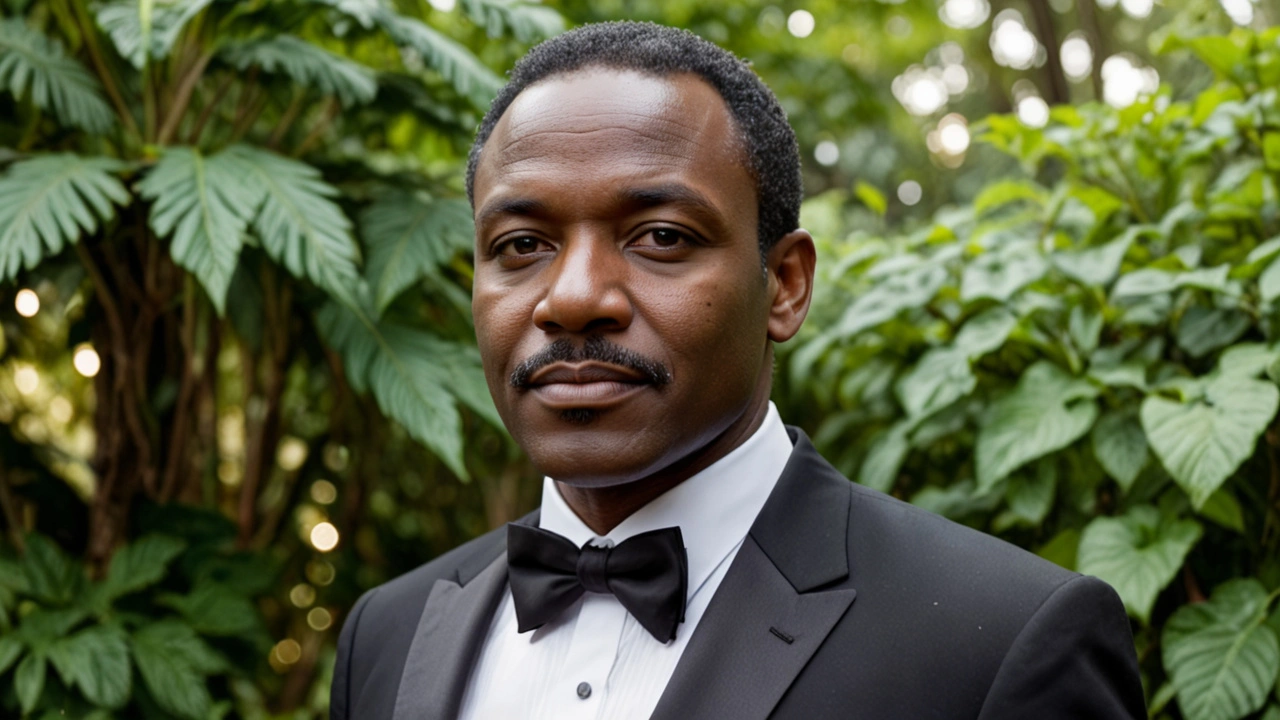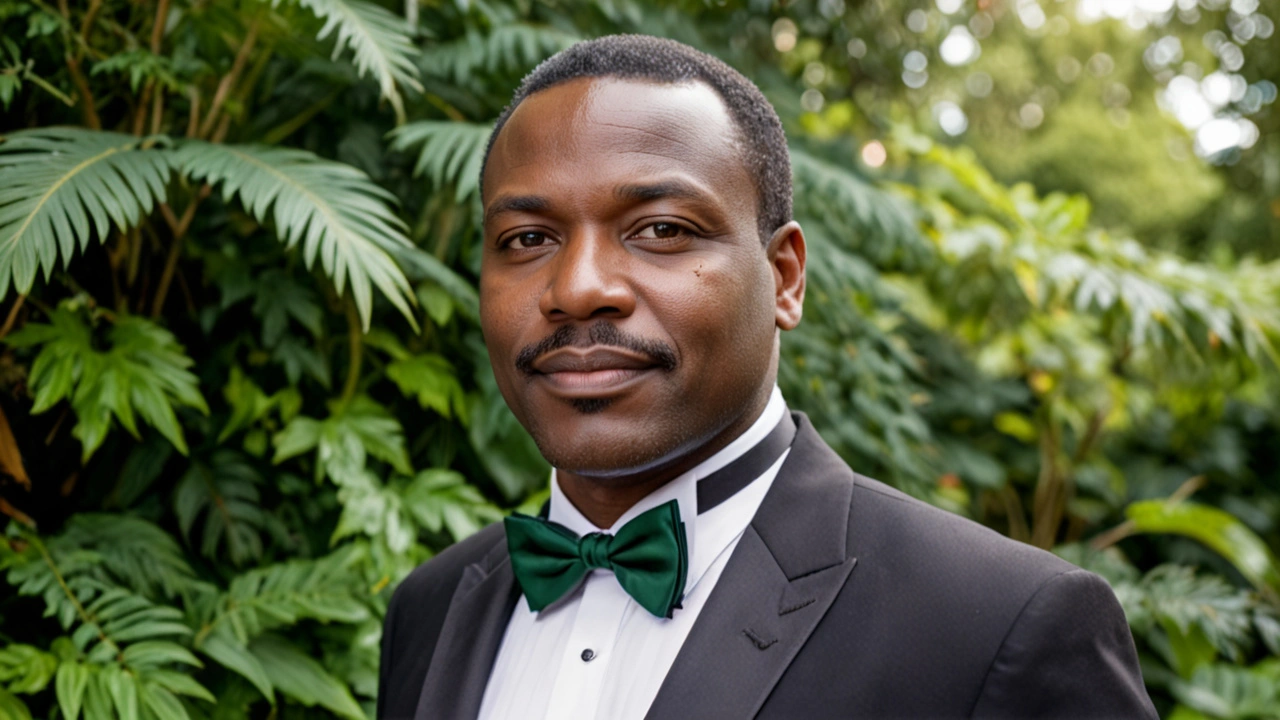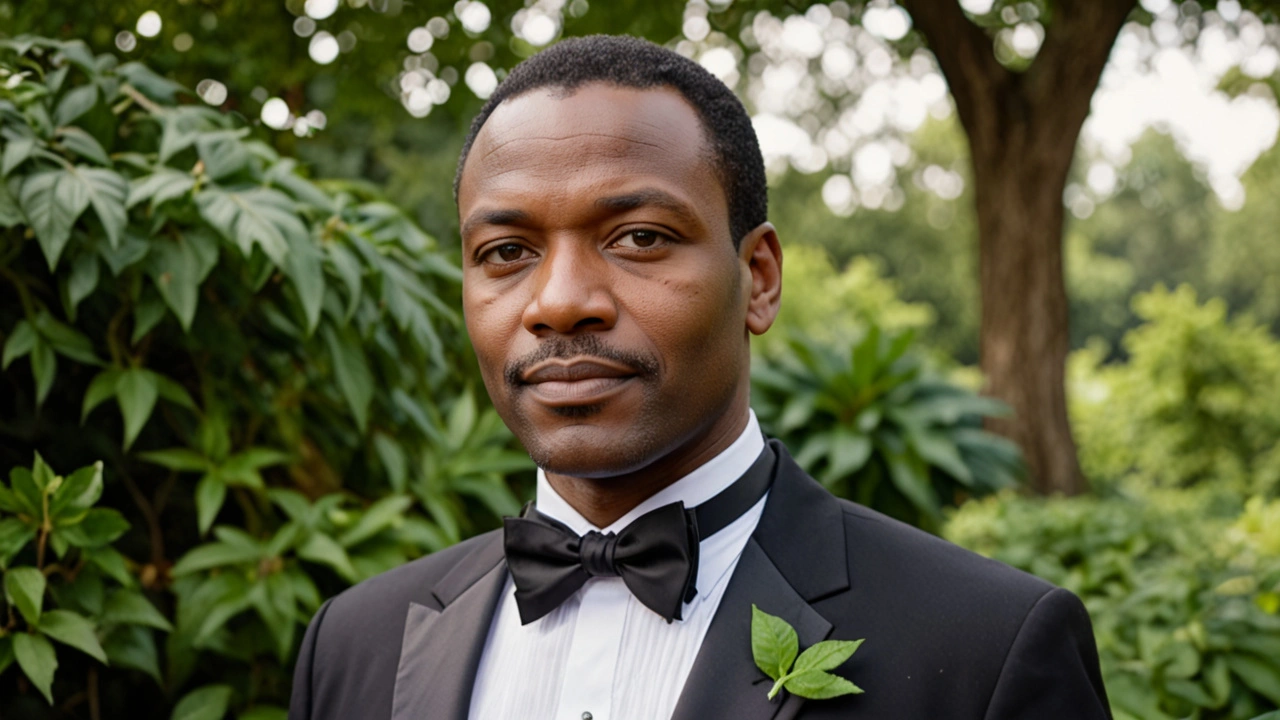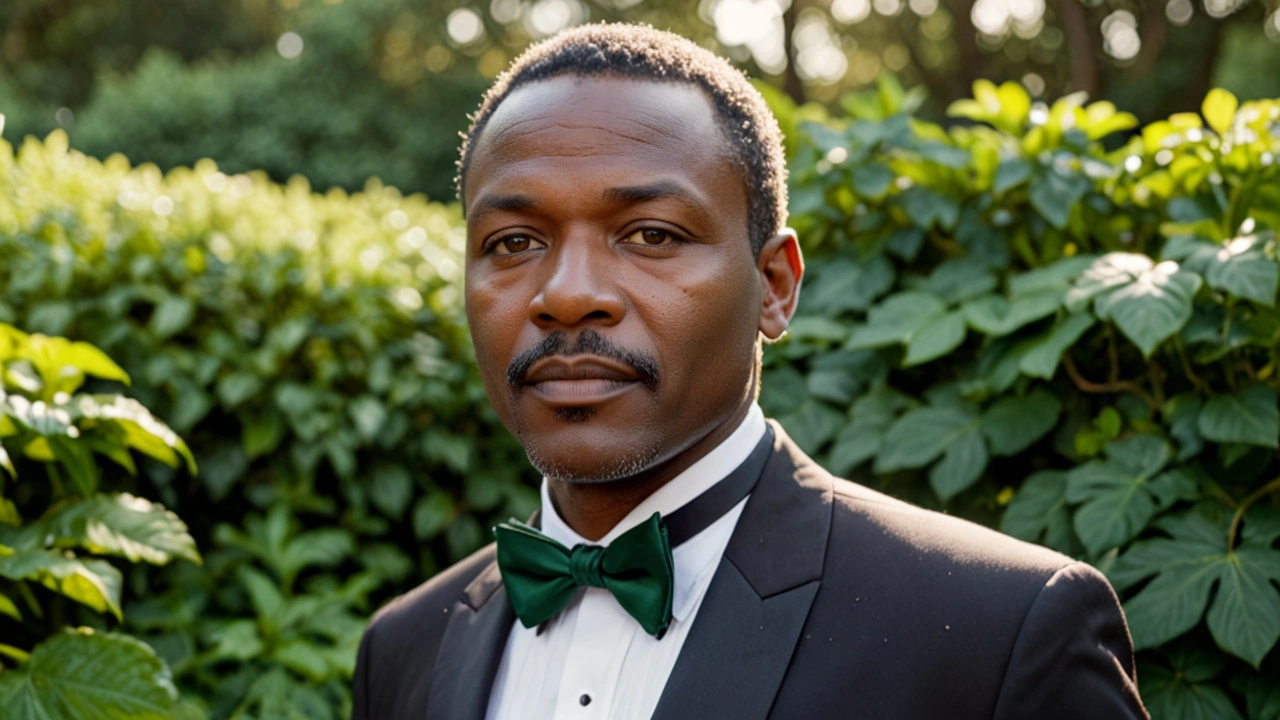Celebrating Wole Soyinka's Defiance Against Oppression at 90

The Life and Legacy of Wole Soyinka
Wole Soyinka, a name synonymous with literary excellence and fervent activism, has achieved an extraordinary milestone—his 90th birthday. Born on July 13, 1934, this multifaceted individual has not only made indelible marks in the world of literature but has also been at the forefront of the struggle for justice and human rights. As the first African laureate to win the Nobel Prize in Literature in 1986, Soyinka's recognition goes beyond the realm of literary accolades; it extends to his unyielding fight against oppression and his pioneering activism aimed at effecting social change.
Early Activism and Literary Contributions
Soyinka's journey as an advocate for justice began in his teenage years, a period during which he discovered his voice and purpose. Prominent from an early age, he was actively involved in challenging the status quo, making him a thorn in the side of those who perpetrated injustice. His bravery and willingness to call out wrongdoings were echoed in his early literary works, which captured the essence of the socio-political turmoil that engulfed his homeland.
One of his most controversial yet celebrated plays, "A Dance of the Forests," written for Nigerian Independence Day in 1960, encapsulated his willingness to confront painful truths. The play was not just a mere celebration; it was a call to reflect on the mistakes of the past to avoid repeating them in the future. Soyinka's ability to intertwine art with activism has remained a recurring theme throughout his career.

The Nobel Laureate
In 1986, the prestige of the Nobel Prize in Literature was added to Wole Soyinka's list of accolades. This recognition was significant, not just personally for Soyinka, but for Africa as a whole, as he became the first African to win this esteemed award. The Nobel committee acknowledged his literary prowess, describing his work as one rich with the essence of African culture and social complexities.
Soyinka's works often explore themes of tyranny, colonialism, and the quest for human dignity. Books like "The Man Died: Prison Notes" and plays like "Death and the King's Horseman" serve as quintessential examples of his literary genius and his fight against oppressive systems. These pieces don't just narrate stories; they are critical commentaries that challenge readers to think and act.
A Defiant Voice
What sets Wole Soyinka apart is not just his literary finesse but also his audacious personality. His fearlessness in confronting powerful entities and his willingness to endure personal suffering for the sake of greater good are aspects that define his legacy. Famous for his outspoken nature, Soyinka has never shied away from making bold statements, even when they earned him enemies. One of his most memorable quotes is about the Negritude movement, which he chastised by saying, "A tiger does not proclaim his tigritude; he pounces." This statement reflects his belief in action over rhetoric, a philosophy that has guided his life and works.
Soyinka's own life has been marked by periods of incarceration, most notably during Nigeria's civil war when he was imprisoned for his efforts to negotiate peace. His book, "The Man Died: Prison Notes," written during this period, offers a poignant glimpse into his resilience and his undying spirit to fight for justice, even in the darkest of times.

A Continuing Legacy
Despite his advanced age, Wole Soyinka remains a towering figure in both literary and activist circles. His sharp intellect and unwavering commitment to championing human rights continue to inspire new generations. He has never ceased to speak out against corruption, bad governance, and human rights abuses, remaining an active participant in Nigeria's socio-political discourse.
More than just a scholar and playwright, Soyinka's distinctive personality—a blend of self-assuredness, originality, defiance, and artistic flair—makes him a captivating figure. His individualism and steadfastness in sticking to his principles, regardless of the consequences, have earned him respect and admiration globally. Indeed, his life is a testament to the enduring power of literature and activism to bring about meaningful change.
Inspiration Beyond Borders
Wole Soyinka's influence does not end within the borders of Nigeria or even Africa. His works have been translated into numerous languages, and his ideas resonate with oppressed and marginalized people worldwide. His ability to articulate the struggles and aspirations of those who have been muted by oppressive regimes speaks to the universality of his message.
From academic institutions to international human rights forums, Soyinka's voice remains powerful and relevant. His contributions extend beyond his books and plays; they are encapsulated in his life story—one of unyielding resistance and relentless pursuit of justice. As he celebrates his 90th birthday, the world honors not just his literary contributions but also his enduring spirit and the hope he continues to instill in millions.

A Lasting Impact
In celebrating Wole Soyinka, we recognize a man whose life has been an unbroken chain of achievements grounded in a profound sense of justice. His works will continue to be studied, celebrated, and, most importantly, acted upon. He is not just a writer but a revolutionary roadmap guiding us toward a more just and equitable society.
Soyinka's 90-year-long journey reminds us that literature is more than just words on a page. It's a dynamic tool for illumination and change. His enduring fight against oppression ensures that his name will forever be synonymous with the relentless pursuit of human dignity and justice. Happy 90th birthday, Wole Soyinka. The world is better because of you.
Wole Soyinka's oeuvre epitomizes the synthesis of dramaturgy and dissent, a paradigm that scholars continue to dissect in postgraduate seminars.
His early production, "A Dance of the Forests," functions not merely as celebration but as a rigorous historiographic interrogation of post‑colonial mythmaking.
Such works underscore the indispensability of literary praxis in confronting entrenched hierarchies.
Across the subcontinent, Soyinka's insistence on speaking truth to power resonates with figures like Mahadevi Verma, whose verses similarly wielded poetry as protest.
His willingness to endure incarceration mirrors the sacrifices of countless Indian dissidents during the Emergency, reinforcing the universal relevance of his defiance.
In that sense, his legacy transcends geographic boundaries, inspiring activists worldwide.
For anyone diving into Soyinka's "Prison Notes," I recommend annotating each passage with the corresponding historical context; it clarifies the nuance often lost in translation.
Pay particular attention to the syntax he employs when describing confinement-it intentionally mirrors the claustrophobic atmosphere.
Doing so not only enriches comprehension but also sharpens one's own analytical writing.
Yo this dude Soyinka is just plain legendary lol.
Reading Soyinka's plays can really open your eyes to how theater can push social change.
He shows that stories aren’t just for entertainment; they can spark real conversations about justice.
Give his work a try and you might feel inspired to stand up for what’s right.
People love to crown Soyinka as the ultimate activist‑author yet they often miss the paradox embedded in his self‑portrait.
He declares that the tiger does not proclaim its tigritude, but he simultaneously broadcasts his own myth through awards and interviews.
This tension reveals a deeper truth about the performative nature of resistance.
When a writer dons the mantle of martyrdom, the act itself becomes a stage‑craft.
Thus his prison notes are not merely testimony but also a choreography of suffering.
Each page oscillates between raw confession and literary construction.
The reader is invited to question which side holds authenticity.
Is the act of writing about oppression a reinforcement of the very structures he opposes?
His plays, especially "Death and the King’s Horseman," dramatize this irony by staging ritual as rebellion.
Meanwhile, his Nobel accolade places him within the Western canon he once critiqued.
Such contradictions are not flaws but intentional provocations.
He wants us to recognize that heroism can be a mirror reflecting society’s own desire for narratives.
In that sense, Soyinka becomes both the tiger and the observer.
The power lies not in pouncing but in exposing the gaze.
By dissecting his own myth, he forces us to confront the mythmaking of all activists.
Ultimately, his legacy challenges us to separate the message from the messenger.
Sure, but we can’t ignore that his Nobel prize was awarded under the same Western institutions that perpetuate neo‑colonial agendas.
His so‑called “defiance” conveniently aligns with the narratives that keep the West feeling morally superior.
It’s a classic case of co‑opted rebellion that serves to sanitize systemic oppression.
Don’t be fooled by poetic language; the real power structures remain untouched.
Honestly i think people make a big fuss about soyinka when there are thousands of unsung writers doing the same thing in their own villages.
We love to hype the Nobel laureate but forget the grassroots storytellers who risk everything without any spotlight.
Maybe we should shift the focus from accolades to actual impact on the ground.
I see your point about the countless local voices, and it’s undeniable that grassroots narratives enrich the tapestry of resistance.
Nevertheless, Soyinka’s visibility does provide a platform that can amplify those very stories when he chooses to share them.
Balancing celebrity influence with community empowerment is a nuanced challenge worth exploring.
For anyone looking to explore Soyinka’s influence beyond literature, check out the documentaries on his activism aired by the BBC.
They compile interviews with fellow Nigerian activists and show how his ideas have shaped modern protest strategies.
These resources are great for getting a well‑rounded view of his contributions.
Those videos are a fantastic way to see how ideas turn into action they really bring his words to life.
Yeah i watched them too and i felt super inspired to join a local readers group we actually discuss his plays and how they apply to todays issues its kinda cool.
When you peel back the glossy veneer of Soyinka’s public persona, you begin to see the hidden hand that guides the narrative of dissent.
Every commendation, every interview, seems meticulously orchestrated by an unseen network that benefits from the appearance of a liberated intellectual.
The timing of his Nobel award, coinciding with geopolitical shifts in the 80s, raises questions about who truly profits from his fame.
Is it possible that his imprisonment was leveraged as a propaganda tool, feeding Western media fodder while diverting attention from deeper systemic rot?
The pattern repeats in his later years: he speaks out against corruption, yet the spotlight he attracts often silences the more radical grassroots movements that could threaten entrenched powers.
This paradox is not merely academic; it has real consequences for those fighting on the front lines.
By positioning himself as the singular voice of resistance, he inadvertently (or perhaps intentionally) centralizes the discourse, making it easier for authorities to monitor and control.
Moreover, the global literary establishment’s embrace of his work creates a cultural monopoly where alternative narratives are marginalized.
One must wonder if the very platforms that celebrate his defiance are complicit in shaping a controlled version of rebellion.
In the end, the truth may lie somewhere between genuine activism and a sophisticated public‑relations strategy designed to soothe both Western audiences and local elites.
Regardless, the drama of his story continues to fascinate, reminding us that history often hides as many secrets as it reveals.